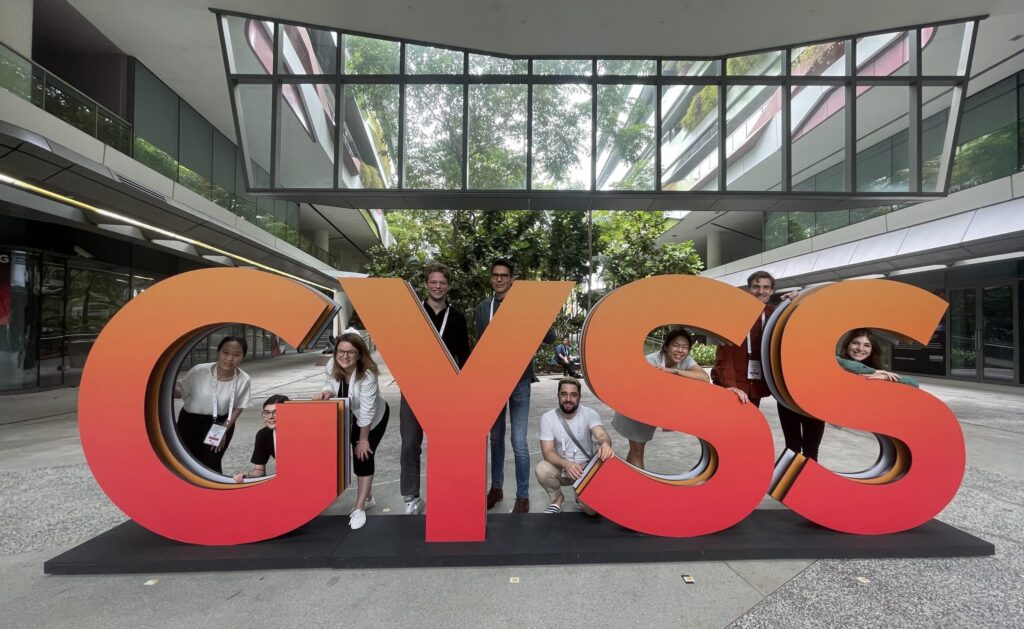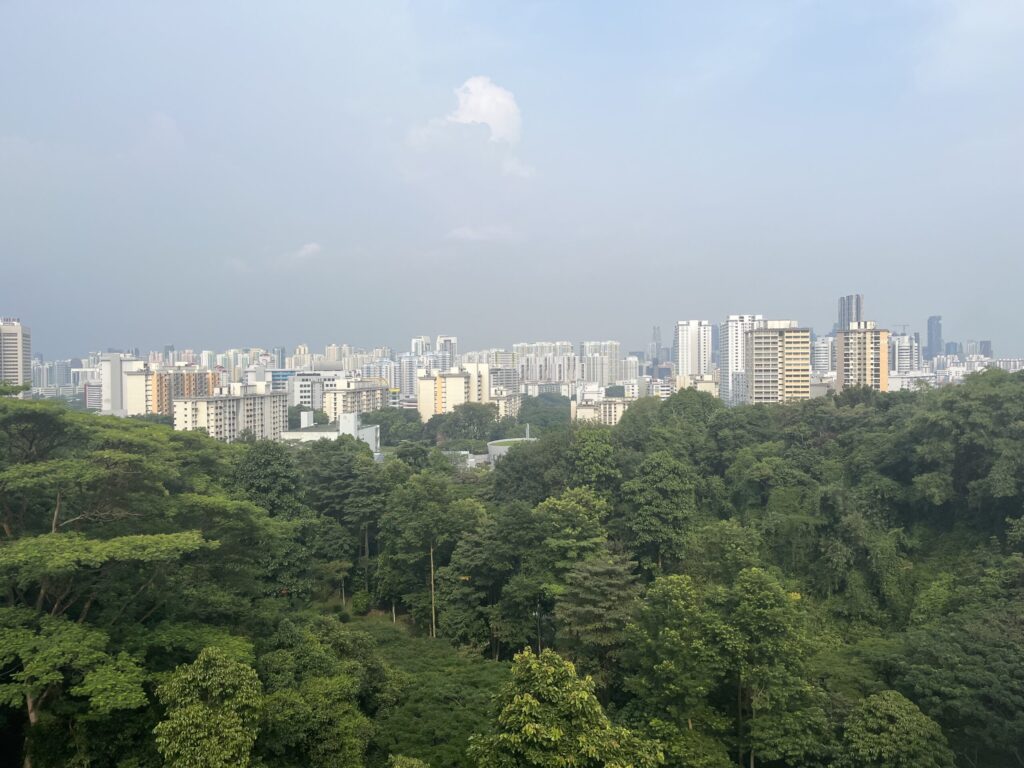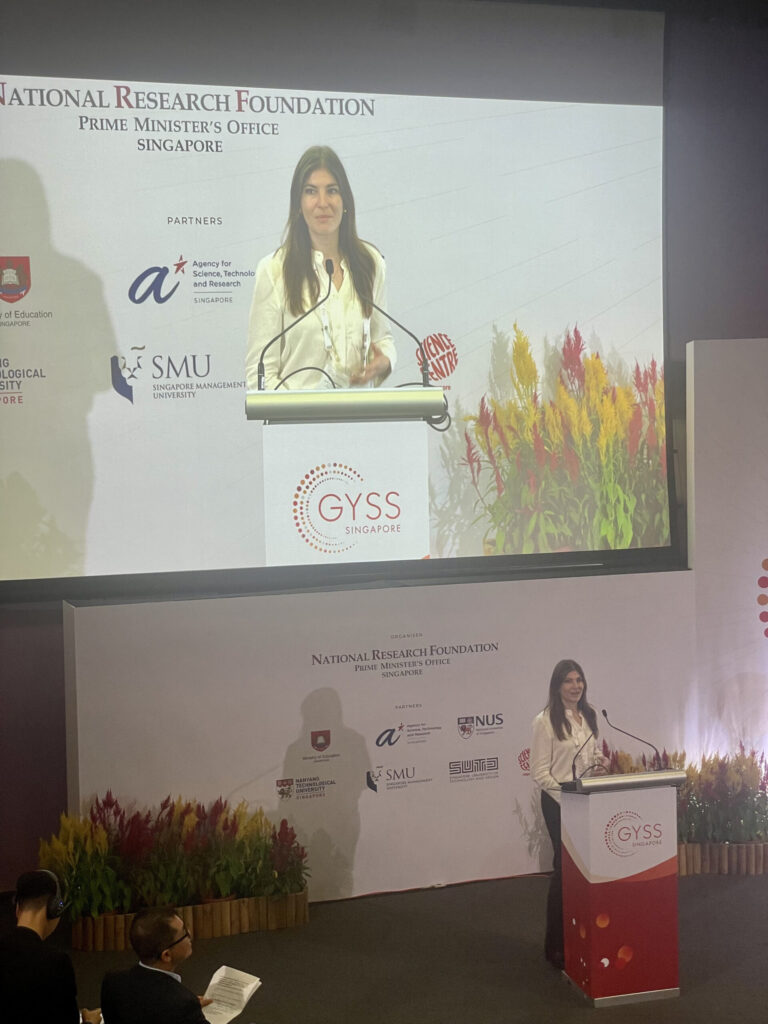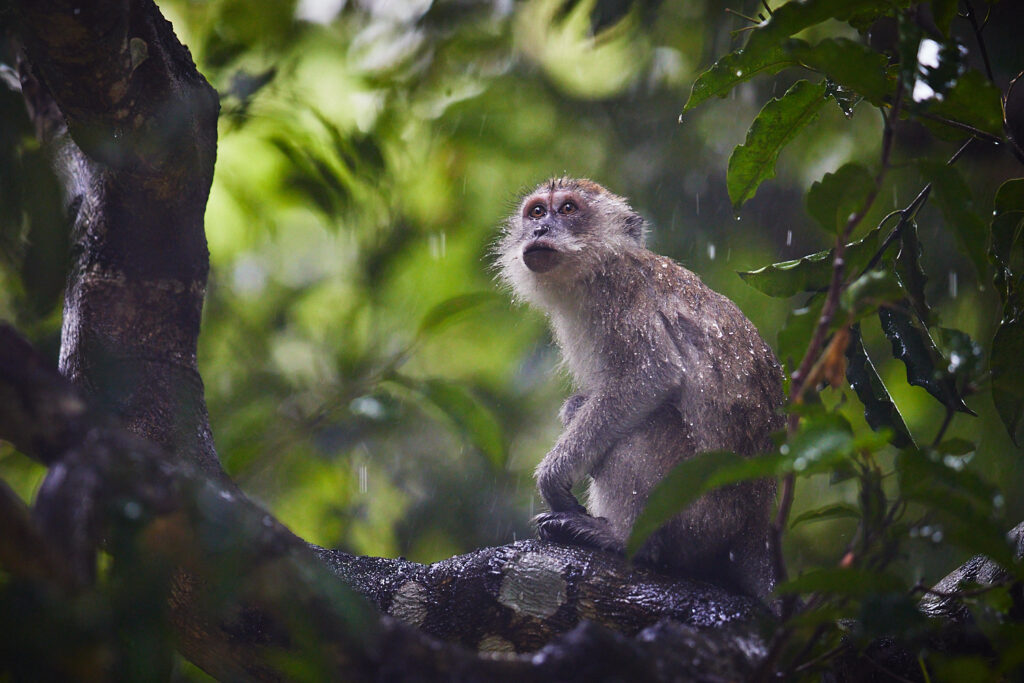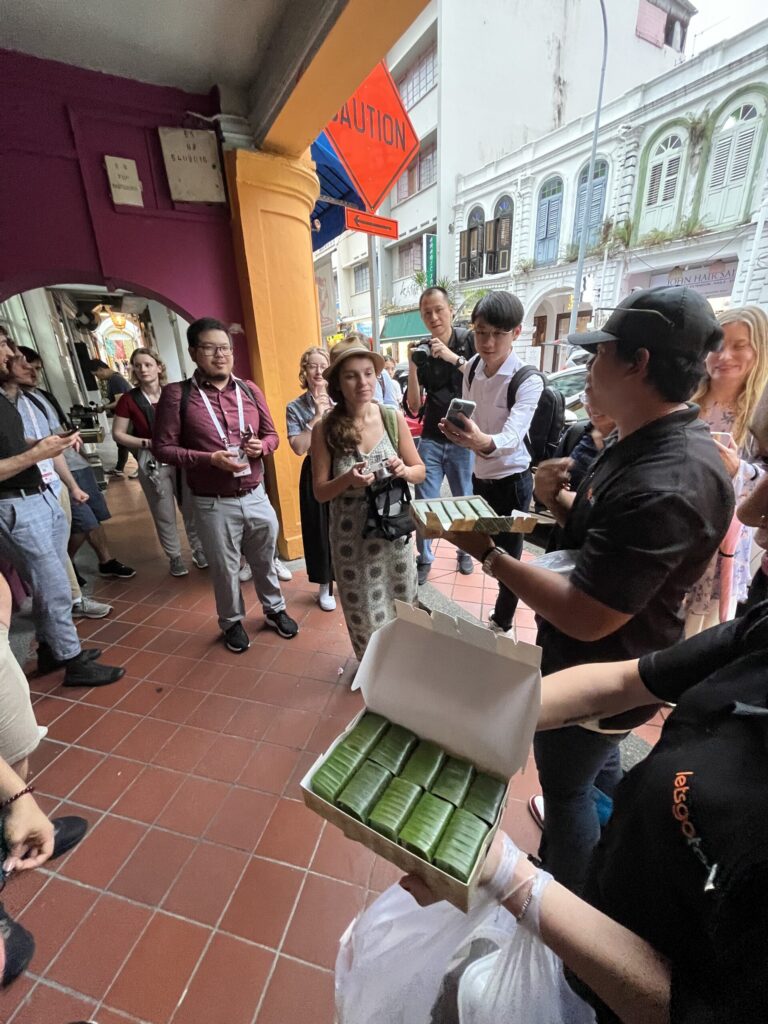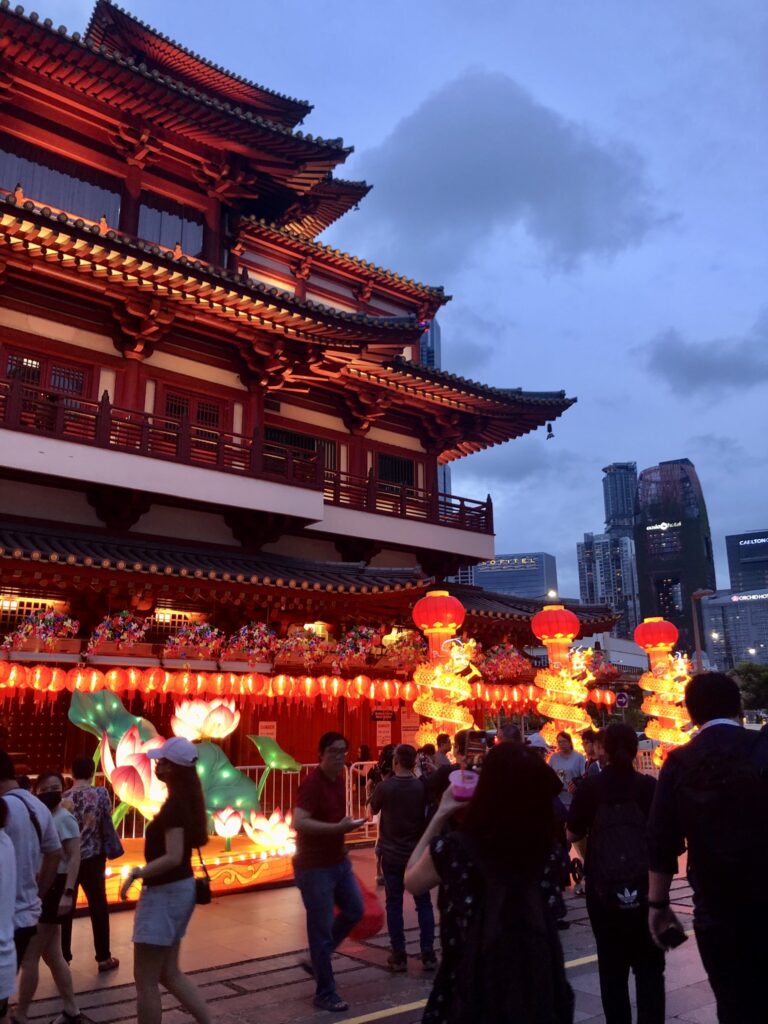Nine ETH Zurich students participated in the Global Young Scientists Summit (GYSS) in Singapore to get inspired by the journey of Nobel laureates and discuss the role of science for human society.
GYSS 2023: Getting Inspired by Nobel Laureates
9 ETH Students, 16 March 2023
We started our week in Singapore with an introduction by Professor Gisbert Schneider to the Singapore-ETH Centre (SEC). The SEC research focuses on sustainable solutions for global challenges, such as shaping modern cities, the cooling of cities, the resilience of infrastructure systems or future health technologies. Gisbert highlighted the similarities between Singapore and Switzerland. Most problems in terms of city planning, living quality and sustainability arise earlier in Singapore and are more accentuated than in Switzerland (and Europe) due to higher population density in the city-state. This offers a great opportunity to learn from Singapore in various aspects. The kick-off event at the SEC was an exciting start of our week at Singapore, with an introduction to the city-state and cutting-edge research to tackle global sustainability issues.
Around 350 young scientists from all over the world have met in Singapore in January for the Global Young Scientists Summit (GYSS). True to the motto of the GYSS “Excite, Engage and Enable”, some of the most distinguished scientists of the world presented their research with exciting talks and shared their stories behind their discoveries or inventions. The conference speakers covered a truly interdisciplinary spectrum of topics: we enjoyed talks about the discovery of single atom layers (Graphene), exoplanets and science communication. The GYSS is probably the only occasion where 21 Nobel laureates gather at one place, accordingly exciting and exceptional was the atmosphere at the conference. We had engaging conversations with the speakers in panel discussions about the role of science for our society. In small group sessions, we could interact closely with the distinguished researchers and get personal advice from them. The numerous coffee breaks and the dinners offered the opportunity to connect to and discuss with other young researchers from different disciplines and backgrounds. The four days at the conference were definitely very inspiring for all of us and an unforgettable experience.
Most of us have spent a couple of days before or after the conference to explore Singapore. The island-state offers an interesting mix of different cultures and has therefore a lot to offer for tourists, much more than delicious foods from different regions in Asia. The prospering city therefore offers astonishing modern architecture downtown just next to vaste green spaces due to the limited available space and the careful city planning. We present below our most inspiring moments of the GYSS and our favorite things to do or places to explore in Singapore, have a look at “My Top Tip for Singapore” in the bio section for the recommendations of us!
Quotes from participants
Flurin Leugger: Proudly submitted your first paper, only to receive a rejection? Thinking that you might never achieve anything? Hang on! The eminent researchers speaking at the GYSS were feeling similar at various stages of their career and - sooner or later - made breakthroughs in their discipline, often changing the life of people worldwide. It was inspiring to see how even such brilliant minds struggled during their career and how persistent they were to achieve and prove their idea for a breakthrough. For example, Barry Marshall, Nobel Prize winner, got his first application for a talk at a conference rejected. His determination in proving his idea of bacteria (Heliobacteria) in the human stomach was remarkable. To do so, he drank a mixture of Heliobacteria in a self-experiment upon he got a severe stomach inflammation. The biopsy revealed that it was indeed caused by the bacteria. Barry Marshal explained in his presentation how bad research design and fraud (and a bit of bad timing) prevented this discovery over 100 years. Thus, one of my most important take home messages of the GYSS was to believe in yourself and be persistent. To close with Barry Marshall words: “If you discover something new, everyone will hate you and your idea.”
Raphaël Baur: Fueled by the recent advances in generative artificial intelligence, the term AI held, perhaps unsurprisingly, a highly prominent position at GYSS 2023. How pervasively will AI change the current scientific landscape? Coming from a computer science background, I was thrilled to learn about the opinions of Laureates and my fellow young scientists. “It is absolutely clear that AI and machine learning has increased our ability to do research and produce new data,” said Konstantin Novoselov, honored with a Nobel Prize for groundbreaking contributions regarding graphene. Specifically, he points out Alpha Fold, a revolutionary machine learning model able to predict the 3D structure of proteins from amino acid sequences. But in the same vein, Novoselov points out that AI has already made research fields obsolete - for example, linguistics, whose applications have now been replaced by large language models, a development that “I regret a little bit, but that's life.” However, not everyone shares Kosolev’s pragmatism. As Didier Queloz, recipient of a Nobel prize for his discovery of the planet Kepler-452b puts it: “There is a fear of technology, but not just now, this has always happened.” In his opinion education can cure this fear: “We need to be knowledgeable about technology to understand its mechanisms." At the same time, Queloz posits that “there is something else going on in our brains - AI doesn’t give us a clue about consciousness.” According to Aaron Chienanover, nobel-price winner for his discovery of ubiquitin-regulated protein degradation, “AI is just a tool”, emphasizing the word tool, “and tools are developed by people”. However, Kosolev suggests that AI is beginning to expand beyond a simple tool: “They say that a smart person can draw analogies between events, but a genius can draw analogies between analogies." - a thought that he links to the success of pre-trained models on tasks unrelated to their original objective. Are machine learning models beginning to draw analogies between analogies - and if so, what remains to be the essential component of human intelligence? I have not found a conclusive answer - but thanks to my peers at GYSS 2023, I witnessed how AI is being integrated into cutting-edge research, be it to predict the properties of new materials or find mappings between properties of graphene derivatives. AI and research - a fruitful symbiosis in contrary to a dulling dystopia.
Una Trivanovic: The GYSS was a great opportunity to meet other young researchers from a variety of different fields while listening to talks from some of the most accomplished scientists in the world. I really enjoyed lectures from Sir Konstantin Novoselov and Sir Andre Geim who won the Nobel Prize for the discovery of graphene which happened to be the topic of my first research project as a Bachelor's student. Geim’s philosophy of ‘Friday night experiments’ that are out of the box or just for fun was what led him to be the only person to win both the Nobel Prize and the Ig Nobel Prize, a satirical prize for trivial or unusual scientific experiments. On the other hand, I also appreciated learning about fields far away from my own. For example, I thought Professor Didier Queloz did an amazing job explaining the methods for detecting exoplanets and the limitations of our current technologies as well as Prof. Barry Marshall’s bold belief in his own work that led him to intentionally drink ulcer-causing bacteria to prove his theories. However, for me one of the most exciting parts of the GYSS was having the opportunity to present my own research to such a broad audience during the Young Scientist Presentations and the engaging discussions I had with my peers during and after the official question period.
Jiayi Lan: GYSS provided me with a unique opportunity to meet young and prestigious scientists from all over the world. I was particularly influenced by their passion and curiosity for science, and their steadfastness when facing failure. At the conference, we not only discussed research, but also important topics like science-society relations, scientific communication, and career in and beyond academia. We have visited various research institutes in Singapore, including the host institute SUTD and the Singapore-ETH Centre. I am really excited to see increased collaboration between Singapore and Switzerland, the two world leading countries in innovation.
Malte Toetzke: I remember when I scrolled through the long and impressive list of confirmed speakers for the GYSS, shortly after getting accepted. There were Nobel laureates, Fields Medal winners, and Turing Award winners and I had to pick one of them for a small and informal discussion session. Not an easy decision, especially when you’re a social scientist and know about DNA sequencing, graphene, or the James Webb Telescope only from newspapers. I picked Didier Queloz who had won the Nobel Prize for his research on extra solar planets and this was great! In the discussion round, he talked about aliens and what they might look like, explained why resettling to Mars is a rather stupid idea, and pointed out that it would be easy to identify life on earth from outer space – quote: “if anyone would observe the massive change of CO2 in the atmosphere, it would be clear that something crazy must be going on on planet earth.” Overall, I learned a lot about the different paths from initial ideas to breakthrough discoveries (although slightly biased by the final success of speakers) and the different hurdles and failures that happened along the way. In particular, I enjoyed sessions about science communication, research ethics, and the role of scientists in public debates. And, most importantly, I got to know many young researchers from all over the world and all different kinds of disciplines. This exchange with fellow researchers was truly inspiring.
Jasmin Schult: To me, the most memorable aspect of the GYSS was its atmosphere: a hum of anticipation and excitement permeated the air, a readiness to be inspired by the many interesting talks, by the food for thought provided by the panel discussions and - most importantly - by the interaction with the other participants. I felt that there was also a strong sense of community, presumably created by a shared passion for research, curiosity and experiences such as the elation when a new idea bears fruit or the disappointment and occasional devastation if it does not. Unsurprisingly, failure and how to cope with it was also a recurring topic in the talks of the speakers and the questions asked by the audience. These shared experiences and answers have encouraged me to more consciously view failure as something positive. As Sir David MacMillan put it: failure is just another word for experience that will enable one to learn from it and develop new ideas and concepts.
David Dreifuss: The lunches and dinners provided fantastic opportunities to both discover the exquisite gastronomy of Singapore and to enthusiastically discuss the talks with other young scientists. Having participants of that many different origins and scientific backgrounds united around the same table is a rare and precious privilege, and made for thrilling conversations. Each presentation was inspiring or thought provoking in its own special way, always sparking animated chats and never failing to make us excited for the next one.
Sarka Drdova: I was thrilled to attend the event, especially because it was my first time traveling outside of Europe. Meeting people from diverse cultures and research fields was an amazing experience. The interactions and discussions with young scientists were absolutely inspiring, fueling my passion for science even further. The laureates' talks were captivating, not only because they presented their research but also because they shared the personal stories behind their successes and the challenges they faced along the way. For instance, one professor even infected himself with Helicobacter pyroli to confirm a diagnosis. I was fortunate enough to attend two small group sessions, one with Professor Konstantin Novoselov and the other with Professor Alison Woollard, allowing for closer interaction with the laureates. It was particularly exciting to hear from Professor Woollard about her experiences as a woman and a mother in the field of science and her insights on science communication. Although I did not have much time for exploration, I was amazed by the beauty and cuisine of Singapore. Overall, it was a fantastic experience that has left a lasting impact on me.
Flurin Leugger: Proudly submitted your first paper, only to receive a rejection? Thinking that you might never achieve anything? Hang on! The eminent researchers speaking at the GYSS were feeling similar at various stages of their career and - sooner or later - made breakthroughs in their discipline, often changing the life of people worldwide. It was inspiring to see how even such brilliant minds struggled during their career and how persistent they were to achieve and prove their idea for a breakthrough. For example, Barry Marshall, Nobel Prize winner, got his first application for a talk at a conference rejected. His determination in proving his idea of bacteria (Heliobacteria) in the human stomach was remarkable. To do so, he drank a mixture of Heliobacteria in a self-experiment upon he got a severe stomach inflammation. The biopsy revealed that it was indeed caused by the bacteria. Barry Marshal explained in his presentation how bad research design and fraud (and a bit of bad timing) prevented this discovery over 100 years. Thus, one of my most important take home messages of the GYSS was to believe in yourself and be persistent. To close with Barry Marshall words: “If you discover something new, everyone will hate you and your idea.”
Raphaël Baur: Fueled by the recent advances in generative artificial intelligence, the term AI held, perhaps unsurprisingly, a highly prominent position at GYSS 2023. How pervasively will AI change the current scientific landscape? Coming from a computer science background, I was thrilled to learn about the opinions of Laureates and my fellow young scientists. “It is absolutely clear that AI and machine learning has increased our ability to do research and produce new data,” said Konstantin Novoselov, honored with a Nobel Prize for groundbreaking contributions regarding graphene. Specifically, he points out Alpha Fold, a revolutionary machine learning model able to predict the 3D structure of proteins from amino acid sequences. But in the same vein, Novoselov points out that AI has already made research fields obsolete - for example, linguistics, whose applications have now been replaced by large language models, a development that “I regret a little bit, but that's life.” However, not everyone shares Kosolev’s pragmatism. As Didier Queloz, recipient of a Nobel prize for his discovery of the planet Kepler-452b puts it: “There is a fear of technology, but not just now, this has always happened.” In his opinion education can cure this fear: “We need to be knowledgeable about technology to understand its mechanisms." At the same time, Queloz posits that “there is something else going on in our brains - AI doesn’t give us a clue about consciousness.” According to Aaron Chienanover, nobel-price winner for his discovery of ubiquitin-regulated protein degradation, “AI is just a tool”, emphasizing the word tool, “and tools are developed by people”. However, Kosolev suggests that AI is beginning to expand beyond a simple tool: “They say that a smart person can draw analogies between events, but a genius can draw analogies between analogies." - a thought that he links to the success of pre-trained models on tasks unrelated to their original objective. Are machine learning models beginning to draw analogies between analogies - and if so, what remains to be the essential component of human intelligence? I have not found a conclusive answer - but thanks to my peers at GYSS 2023, I witnessed how AI is being integrated into cutting-edge research, be it to predict the properties of new materials or find mappings between properties of graphene derivatives. AI and research - a fruitful symbiosis in contrary to a dulling dystopia.
Una Trivanovic: The GYSS was a great opportunity to meet other young researchers from a variety of different fields while listening to talks from some of the most accomplished scientists in the world. I really enjoyed lectures from Sir Konstantin Novoselov and Sir Andre Geim who won the Nobel Prize for the discovery of graphene which happened to be the topic of my first research project as a Bachelor's student. Geim’s philosophy of ‘Friday night experiments’ that are out of the box or just for fun was what led him to be the only person to win both the Nobel Prize and the Ig Nobel Prize, a satirical prize for trivial or unusual scientific experiments. On the other hand, I also appreciated learning about fields far away from my own. For example, I thought Professor Didier Queloz did an amazing job explaining the methods for detecting exoplanets and the limitations of our current technologies as well as Prof. Barry Marshall’s bold belief in his own work that led him to intentionally drink ulcer-causing bacteria to prove his theories. However, for me one of the most exciting parts of the GYSS was having the opportunity to present my own research to such a broad audience during the Young Scientist Presentations and the engaging discussions I had with my peers during and after the official question period.
Jiayi Lan: GYSS provided me with a unique opportunity to meet young and prestigious scientists from all over the world. I was particularly influenced by their passion and curiosity for science, and their steadfastness when facing failure. At the conference, we not only discussed research, but also important topics like science-society relations, scientific communication, and career in and beyond academia. We have visited various research institutes in Singapore, including the host institute SUTD and the Singapore-ETH Centre. I am really excited to see increased collaboration between Singapore and Switzerland, the two world leading countries in innovation.
Malte Toetzke: I remember when I scrolled through the long and impressive list of confirmed speakers for the GYSS, shortly after getting accepted. There were Nobel laureates, Fields Medal winners, and Turing Award winners and I had to pick one of them for a small and informal discussion session. Not an easy decision, especially when you’re a social scientist and know about DNA sequencing, graphene, or the James Webb Telescope only from newspapers. I picked Didier Queloz who had won the Nobel Prize for his research on extra solar planets and this was great! In the discussion round, he talked about aliens and what they might look like, explained why resettling to Mars is a rather stupid idea, and pointed out that it would be easy to identify life on earth from outer space – quote: “if anyone would observe the massive change of CO2 in the atmosphere, it would be clear that something crazy must be going on on planet earth.” Overall, I learned a lot about the different paths from initial ideas to breakthrough discoveries (although slightly biased by the final success of speakers) and the different hurdles and failures that happened along the way. In particular, I enjoyed sessions about science communication, research ethics, and the role of scientists in public debates. And, most importantly, I got to know many young researchers from all over the world and all different kinds of disciplines. This exchange with fellow researchers was truly inspiring.
Jasmin Schult: To me, the most memorable aspect of the GYSS was its atmosphere: a hum of anticipation and excitement permeated the air, a readiness to be inspired by the many interesting talks, by the food for thought provided by the panel discussions and - most importantly - by the interaction with the other participants. I felt that there was also a strong sense of community, presumably created by a shared passion for research, curiosity and experiences such as the elation when a new idea bears fruit or the disappointment and occasional devastation if it does not. Unsurprisingly, failure and how to cope with it was also a recurring topic in the talks of the speakers and the questions asked by the audience. These shared experiences and answers have encouraged me to more consciously view failure as something positive. As Sir David MacMillan put it: failure is just another word for experience that will enable one to learn from it and develop new ideas and concepts.
David Dreifuss: The lunches and dinners provided fantastic opportunities to both discover the exquisite gastronomy of Singapore and to enthusiastically discuss the talks with other young scientists. Having participants of that many different origins and scientific backgrounds united around the same table is a rare and precious privilege, and made for thrilling conversations. Each presentation was inspiring or thought provoking in its own special way, always sparking animated chats and never failing to make us excited for the next one.
Sarka Drdova: I was thrilled to attend the event, especially because it was my first time traveling outside of Europe. Meeting people from diverse cultures and research fields was an amazing experience. The interactions and discussions with young scientists were absolutely inspiring, fueling my passion for science even further. The laureates' talks were captivating, not only because they presented their research but also because they shared the personal stories behind their successes and the challenges they faced along the way. For instance, one professor even infected himself with Helicobacter pyroli to confirm a diagnosis. I was fortunate enough to attend two small group sessions, one with Professor Konstantin Novoselov and the other with Professor Alison Woollard, allowing for closer interaction with the laureates. It was particularly exciting to hear from Professor Woollard about her experiences as a woman and a mother in the field of science and her insights on science communication. Although I did not have much time for exploration, I was amazed by the beauty and cuisine of Singapore. Overall, it was a fantastic experience that has left a lasting impact on me.
About the Authors
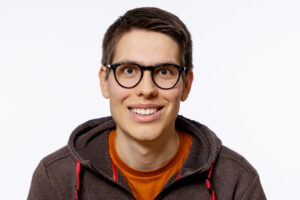
Flurin Leugger
I am a PhD student in the Ecosystems and Landscape Evolution group at the department of environmental systems sciences. My research focuses on biodiversity monitoring methods using environmental DNA (eDNA). Specifically, I am developing quick tests to rapidly detect, e.g., endangered species or assess ecosystem health. My Top Tip for Singapore is the MacRitchie Reserve. Located at the center of Singapore, you can experience the tropical rainforest. The contrast between the skyscrapers downtown and the lush green is astonishing! One could spend days exploring the forest on the various hiking trails. If you are lucky, you might spot wild monkeys.
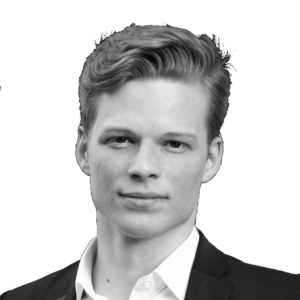
Raphaël Baur
I am a Masters Student in Computer Science and work as a research assistant in the Chair of Cognitive Science and the ETH AI Center. I am particularly interested in modelling human behavior in the context of wayfinding to predict human movement in early design stages of buildings. On a broader scope, I am applying novel machine learning methods to understand the relationship between the built environment and human behavior. My Top Tip for Singapore are the many Hawker markets where you can indulge in delicious local culinary specialities. While there are many and each one is worth a try, I found myself returning to Tiong Bahru Market to satisfy my craving for a rich breakfast.
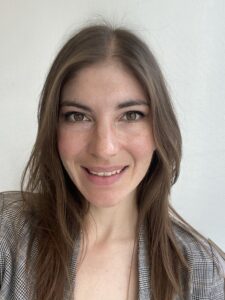
Una Trivanovic
I am a PhD student at the Particle Technology Laboratory in the Mechanical and Process Engineering department. My research focuses on the production and characterization of carbon nanoparticles which may have harmful effects on human health or climate change in the form of soot or can be important commercial materials such as carbon black. My Top Tip for Singapore is to visit the expansive Botanical Gardens and in particular, don’t miss the National Orchid Garden.
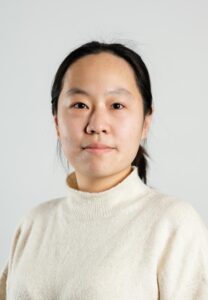
Jiayi Lan
I recently graduated from ETH Zurich as a doctor in chemistry. I am working in the group of Professor Zenobi on analytical chemistry, where we try to develop novel mass spectrometry-based methods that allow us to monitor the metabolism of experimental animals in real-time. I am interested in the interaction between gut microbiota and their host through the exchange of volatile metabolites. My Top Tip for Singapore is to go walk on the Southern Ridges trail, where you can see the Singapore Skylines and nature reserves.
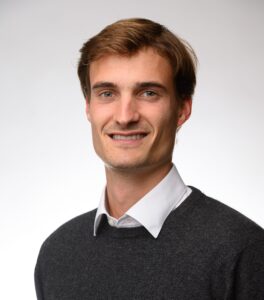
Malte Toetzke
I am a PhD candidate at the group for Sustainability and Technology (SusTec) focusing on the global transition towards net-zero emissions. In this context, my research aims at informing public policy through development and applications of novel techniques from data science and machine learning in climate finance, carbon markets, and climate tech innovation. My Top Tip for Singapore is to check out the local food markets and to try out the many different kinds of Asian dishes.
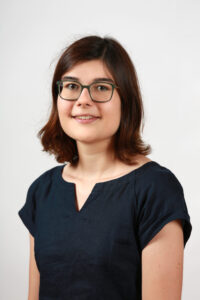
Jasmin Schult
I am a Master's Student in Computer Science. I am particularly interested in the formal modelling of real-world complex systems, which is why I am currently writing my Master's thesis in the Network and Operating Systems Group on the topic of modelling and black-box testing an in-silicon cache coherence protocol implementation. My Top Tip for Singapore is to visit any one of the many Hawker centres. Most stalls only sell very few dishes whose recipes they must have perfected over multiple generations based on how delicious they are!
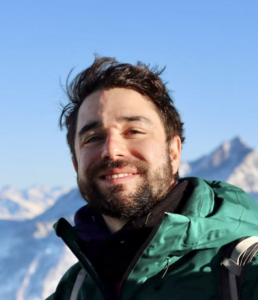
David Dreifuss
I am a PhD student in the Computational Biology Group of the Biosystems Science and Engineering department. My research is focused on developing methods for identifying pathogens and their genomic variants circulating in a population by analysing samples of city wastewater. My Top Tip for Singapore is to take advantage of the fresher night hours to go explore the city using the public bikes.
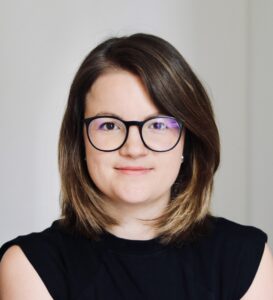
Sarka Drdova
I am a PhD student at the Air Quality and Particle Technology, led by Professor Jing Wang, at the Institute of Environmental Engineering within the Department of Civil, Environmental and Geomatic Engineering. My research interests lie in the area of photocatalytic technology for airborne organic pollutant control applications. My Top Tip for Singapore is to spend some time at Changi airport, which is an award-winning international airport with a stunning 40-meter indoor waterfall and other amazing attractions.


